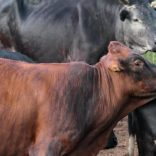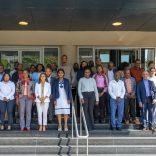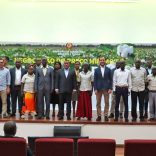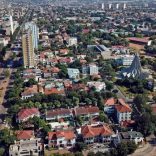AICS to disburse $3.8 million for agricultural project covering Mozambique and Zimbabwe
Genetically modified maize tested in Chokwe – Mozambique

Fie photo
The Mozambican authorities are testing genetically modified maize in the Chokwe Agricultural Station, in the southern province of Gaza, according to a report in the Beira daily paper “Diario de Mocambique”.
The purpose is to identify a strain of maize, suited to Mozambican agro-ecological conditions that can tolerate drought and resist insect pests.
The first sowing of this trial maize, imported from the United States, took place in Chokwe on Saturday, in the experimental field run by the Mozambican Agricultural Research Institute (IIAM). It part of the programme WEMA (Water Efficient Maize for Africa).
WEMA involves researchers from the IIAM, Tanzania, South Africa, Kenya and Uganda. The Chokwe experimental field was established recently by the IIAM specifically for trials of Genetically Modified Organisms (GMOs).
Maize has been chosen for the initial research, and results are expected within three years. Saturday’s sowing, occurring during the rainy season, was focused on a strain of the crop that will be resistant to insects. Drought tolerant strains will be planted during the cool, dry season when, in much of Gaza, there is virtually no rainfall at all.
The IIAM researcher in WEMA, Pedro Fato, said immediately after the Saturday sowing that, if the trial brings positive results, that will be good news for Mozambican farmers.
“This will be added value for our farmers who are greatly in need of new technologies for production and productivity, to keep up with the new dynamic imposed by climate change”, added Fato. These technologies should cope with drought and insect pests “which have had such a negative impact on crops in Africa, and particularly in Mozambique”.












Leave a Reply
Be the First to Comment!
You must be logged in to post a comment.
You must be logged in to post a comment.